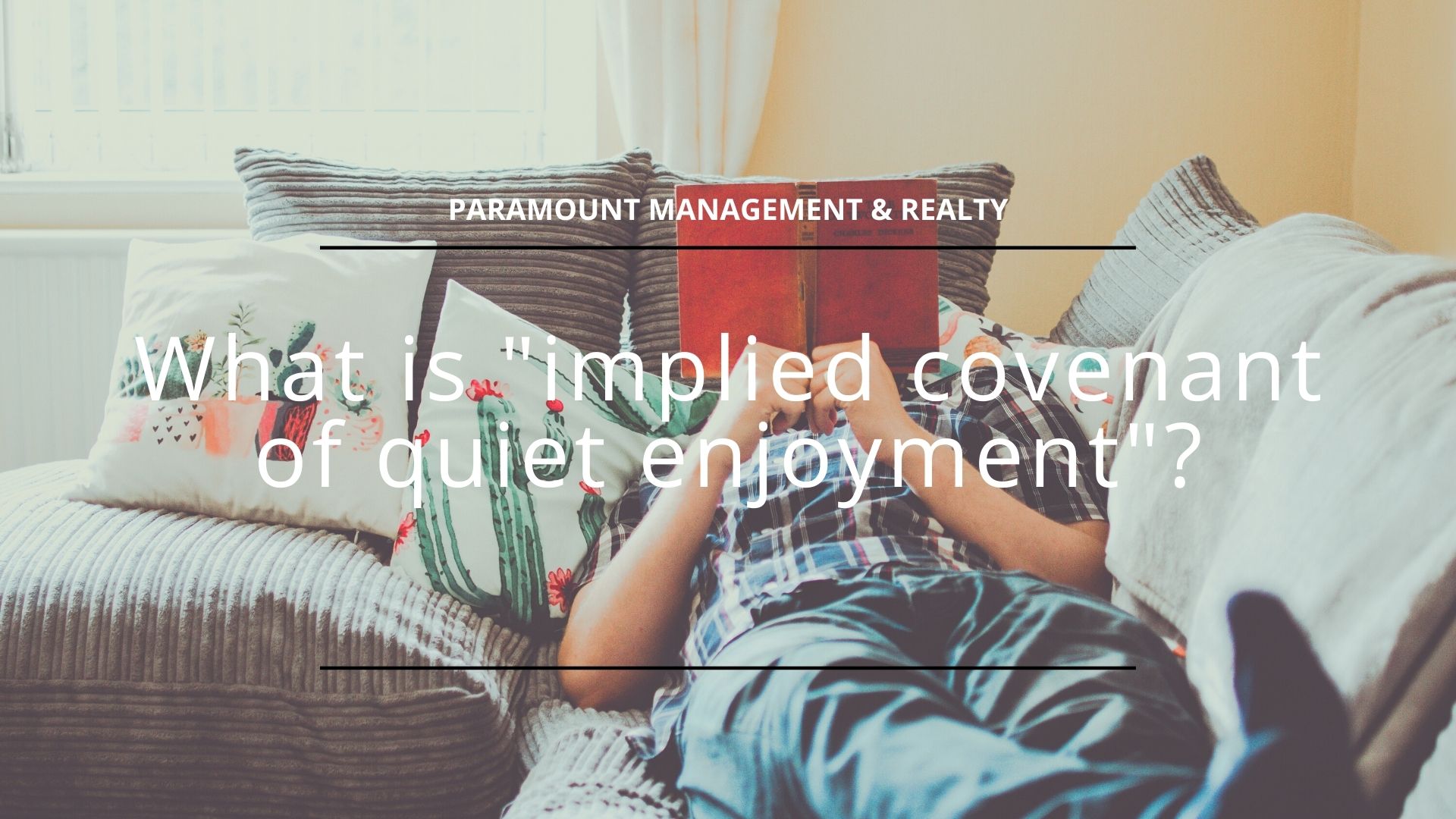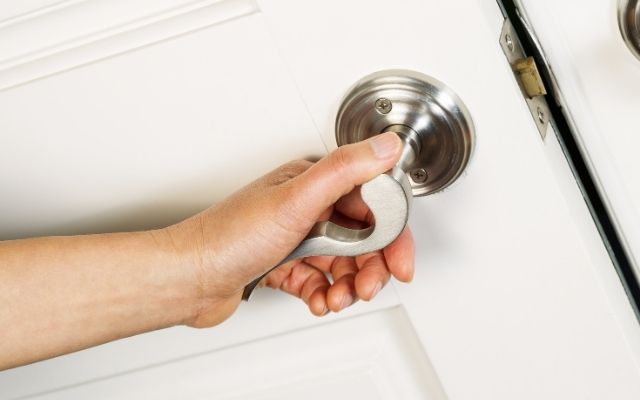
A lease or rental agreement gives tenants certain rights. Some are expressly stated, while others are implied. Expressly stated rights in the lease include the rent and security deposit amount, as well as responsibilities of both the landlord and the tenant.
Implied rights, on the other hand, are those that are not clearly outlined on the lease or rental agreement. Nevertheless, they are still protected by tenancy law. A good example of this is the “implied covenant of quiet enjoyment.”
In the U.S., all tenants have a right to the quiet enjoyment of their rented premises. The “implied covenant of quiet enjoyment” is simply a promise from a landlord that they ensure the tenant gets a peaceful environment to allow them to enjoy the premises without annoyances.
Whether implied or expressly stated, it’s a basic tenant right granted to every tenant. So, as a landlord, violating this fundamental tenant right can amount to a serious breach of the tenancy agreement.
Consequently, your tenant may have several legal options to pursue. Including, withholding further rent payments, moving out, or even suing you.
As such, as a landlord, understanding this law is key to the success of your rental investment. In today’s article, you’re going to learn everything you need to learn about this crucial tenant right.
Quiet Enjoyment
So, what exactly does “quiet enjoyment” mean? Under the lease agreement, tenants have two fundamental rights. That is, a right to live in a dwelling that is both safe and adheres to the state’s health and building codes. Additionally, a right to live in their rented premises in peace and quiet.

Now, defining “quiet enjoyment” can be tricky, as it is a relative term. No two scenarios are ever going to be similar.
As per this online legal resource, “quiet enjoyment” is defined as the undisturbed use and enjoyment of a rental property by a tenant. With that in mind, tenants who sign a lease are entitled to:
- Reasonable privacy, comfort, and peace. As a landlord, it’s your duty to ensure that you don’t do anything that can interfere with their privacy, comfort and peace.
- Safe and secure premises. As a landlord, it isn’t just important to secure your profits, you should also check on the security of your property.
- Exclusive use of the premises. Once the tenant signs the lease, the home becomes theirs to use exclusively. The only exception to this is when you need to access the premises to carry out important landlording functions.
- A habitable unit. Also, as a landlord, it’s your responsibility to ensure your tenant lives in a habitable rental property. For instance, one that is weatherproofed, has adequate water supply, and has properly functioning heating, electrical and plumbing systems.
Landlord Entry
About half of the states have rules regarding this. The rules basically stipulate when a landlord can enter rented premises, and under what circumstances. The following are common reasons why a landlord may want to enter a tenant’s premises:
- Under a court order.
- To show the unit to prospective buyers, lenders, and tenants.
- To carry out required or requested repairs.
- If the landlord has sufficient reasons to believe the unit has been abandoned by the tenant.
- To carry out routine inspections as per the lease.
- In case of an emergency, such as a serious water leak or a fire.

Additionally, some states also require landlords to notify their tenants prior to the entry. Arizona, for example, requires that landlords serve their tenants with a 2 days’ notice prior to accessing it. The only exception to this is if you are responding to an emergency at their rented premises.
The timing of the entry must also be reasonable. Broadly speaking, this should be between 9AM and 5AM during weekdays, and between 10AM and 3PM during weekends.
Violations to the Covenant of Quiet Enjoyment
As a landlord, the following are some things that you should avoid doing, as they may be interpreted as a serious breach to the covenant of quiet enjoyment:
- Failing to provide the tenant with a notice prior to entering their rented units.
- Failing to control disruptions.
- Engaging in actions that harass the tenant, such as restricting or terminating access to essential services, like hot water and electricity.
- Curtailing the tenant enjoyment of the property, like entertaining their guests.
- Failing to act on a tenant’s repair request, especially if it impacts their habitability or safety.
Acceptable Disturbances
So long as you don’t do them repeatedly, the following disturbances may not be necessarily deemed as violations of quiet enjoyment:
- Knocking on your tenant’s door to demand for rent due.
- Calling your tenant repeatedly on the phone to inquire for something, for example, to remind them of an upcoming inspection.
- Responding to an emergency repair. In such a case, you wouldn’t be required to serve the tenant with a notice.
- Carrying out scheduled repairs and maintenance works. Please note that you must first serve your tenant with adequate notice prior to accessing their unit.
- Constant disturbance from the footsteps of tenants living upstairs.

- Noise from wildlife, such as birds and crickets.
- Barking from a dog that the owner keeps under control.
- A smoke alarm that goes off every once in a while but which is turned off quickly.
- An average dinner party with moderate noise level.
Mitigating Against Breach of the Covenant of Quiet Enjoyment
As a landlord, it’s your responsibility to ensure that issues at your rented premises are taken care of as quickly as possible.
When a tenant has a legitimate concern:
- Talk to the tenant bringing about the disruption. This is pretty commonplace in multi-unit complexes. As they may be unaware, let the tenant know that they risk legal action should they continue with their behavior.
- Consider compensating the tenant. Suppose when renovating the unit, a tenant strips and breaks an arm. In such a case, taking care of their medical bills can help avoid a myriad of issues.
- Consider eviction of the tenant causing the disruption. When everything else fails, evicting the problem tenant can be the only remedy left.
As a landlord, understanding key tenancy laws, such as the “implied covenant of quiet enjoyment” is important. So, if you’re just getting started as a landlord, hiring a professional and experienced property management company may be in your best interest.



